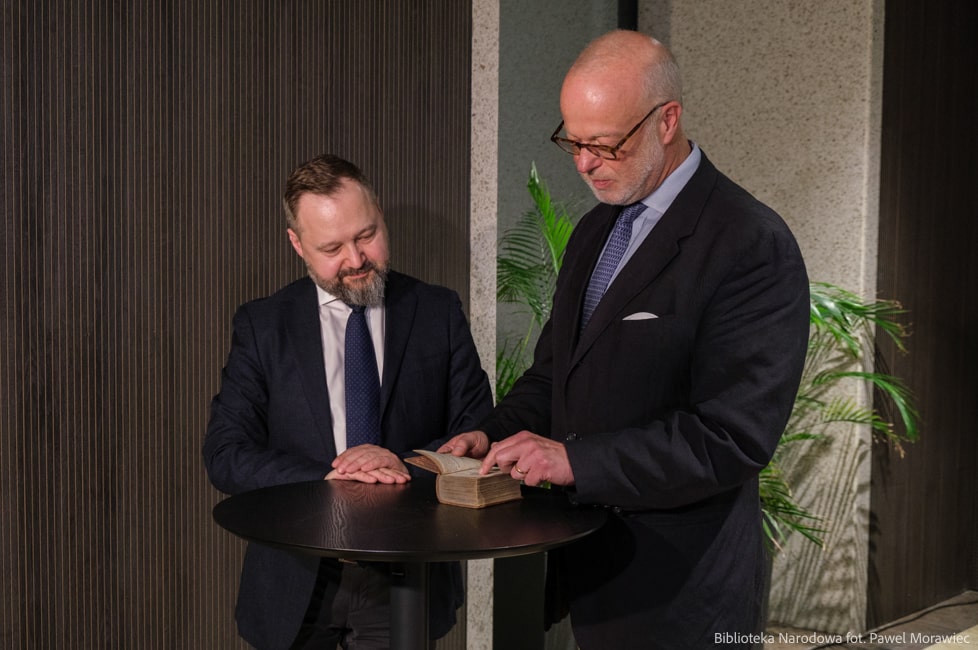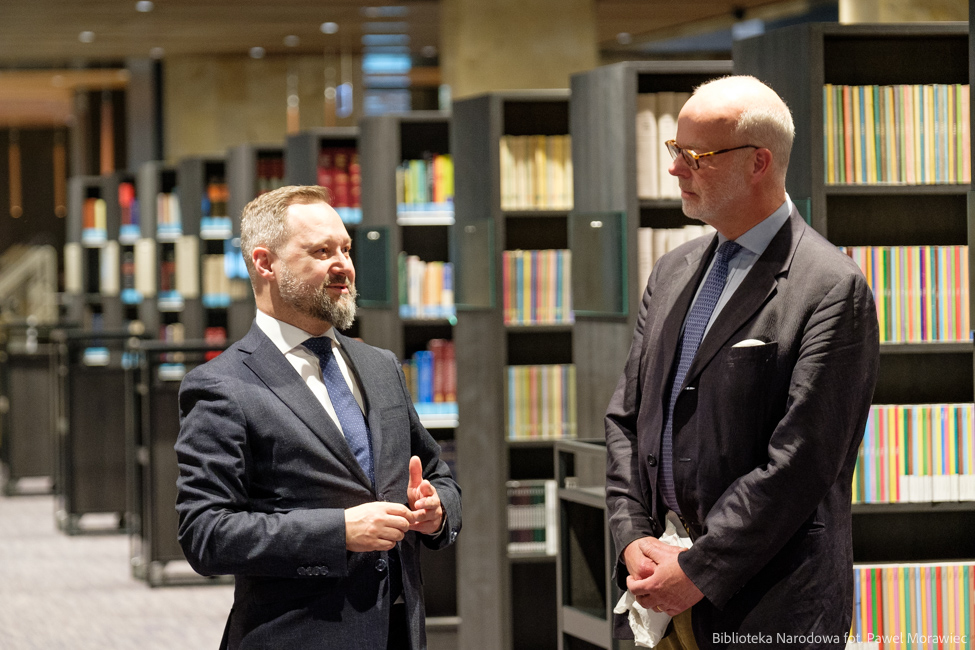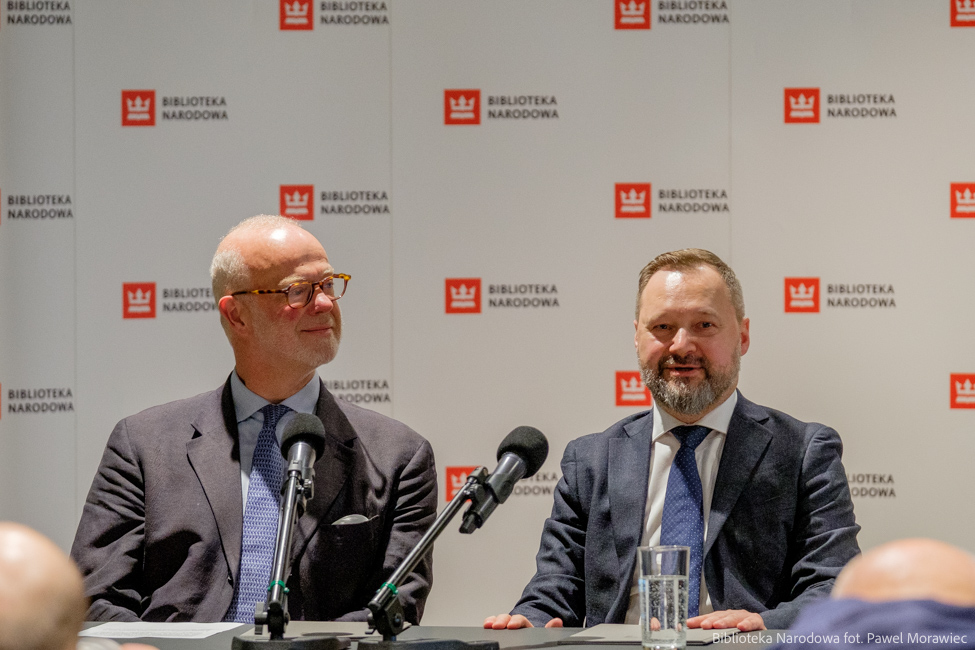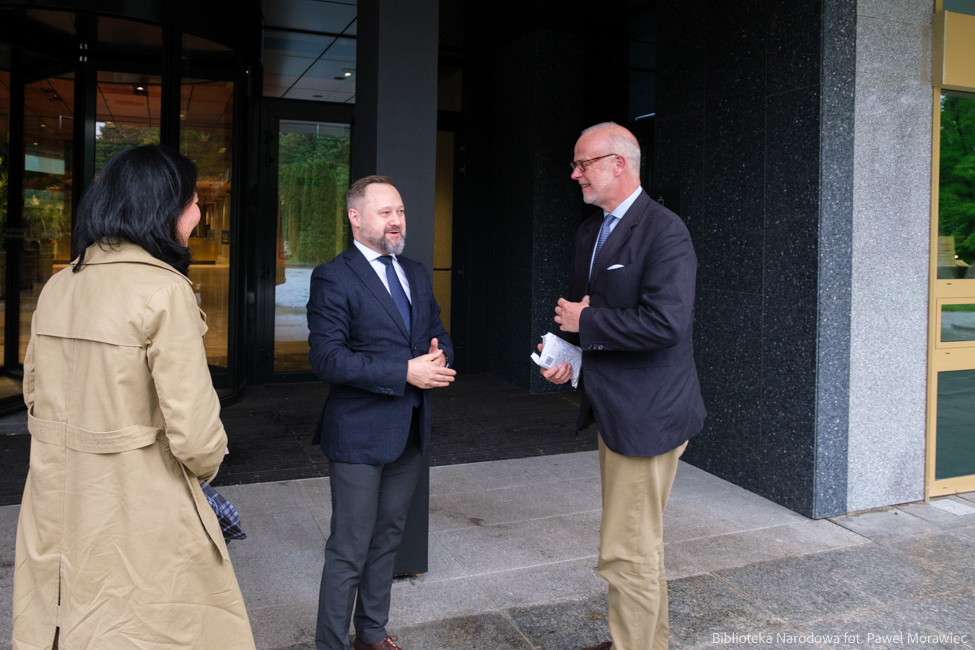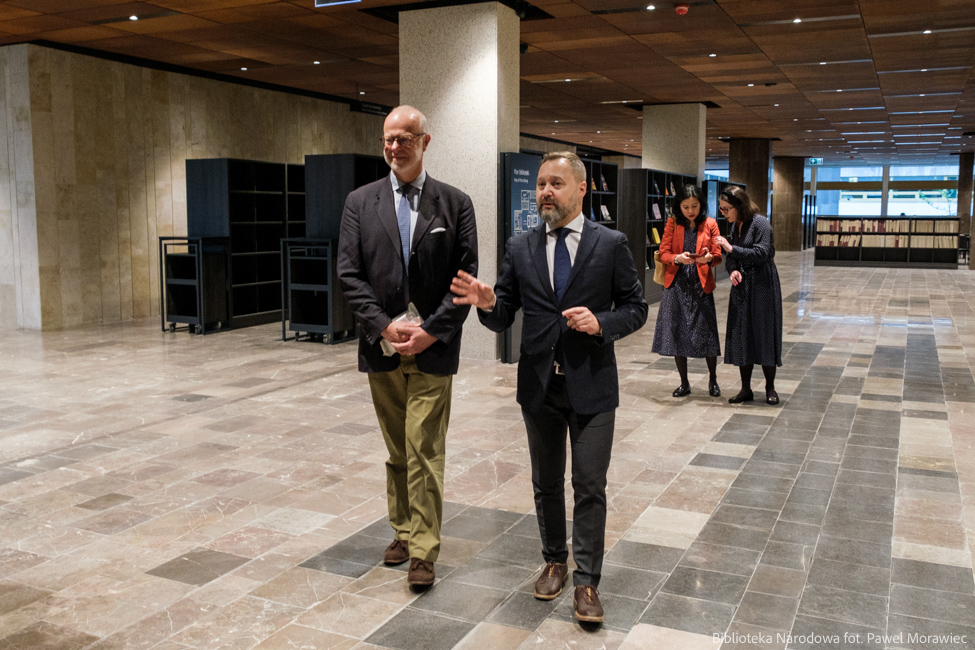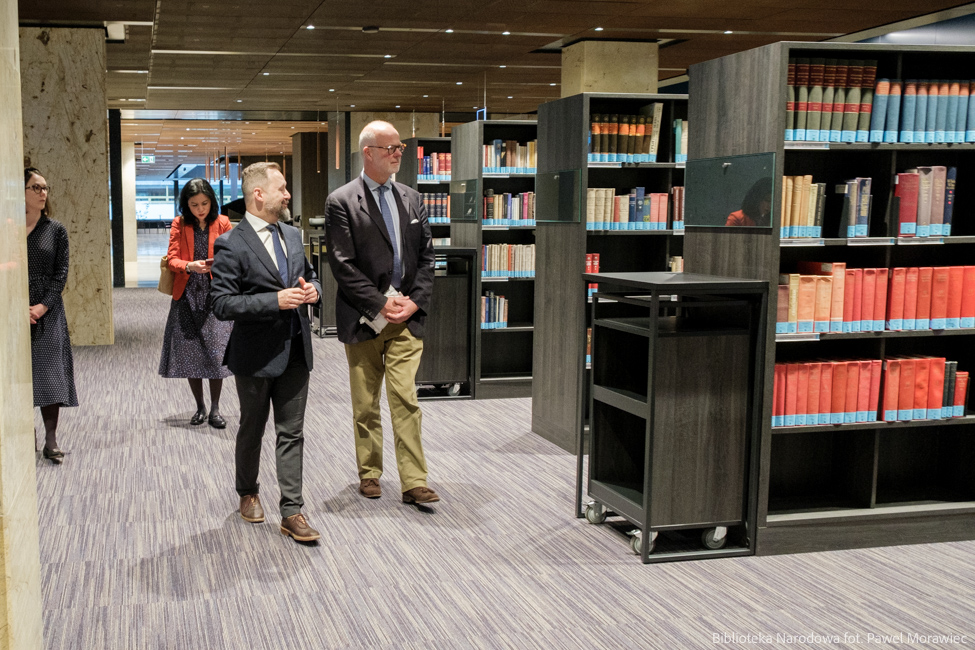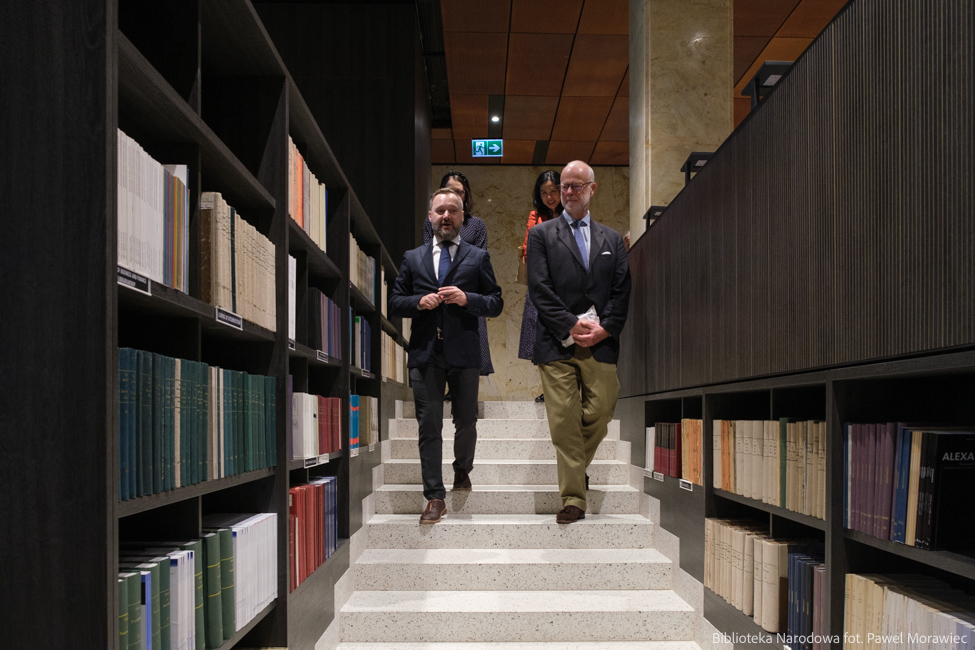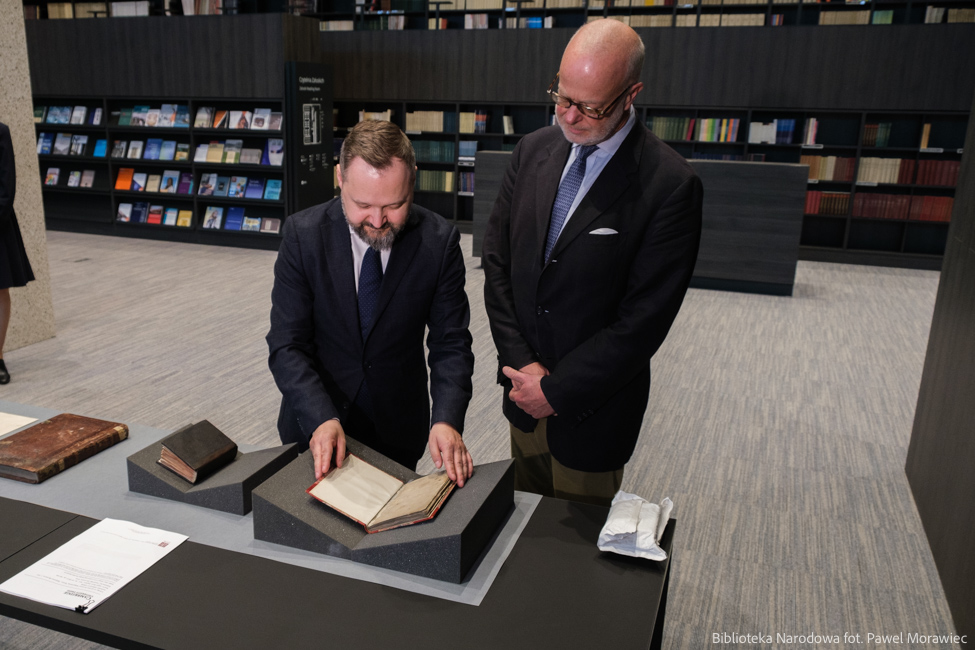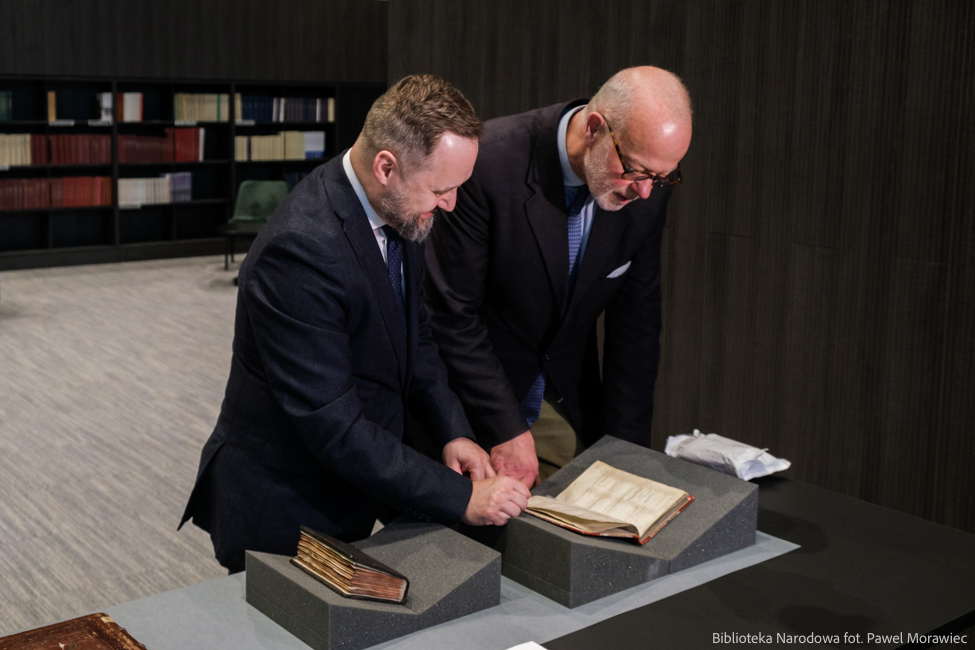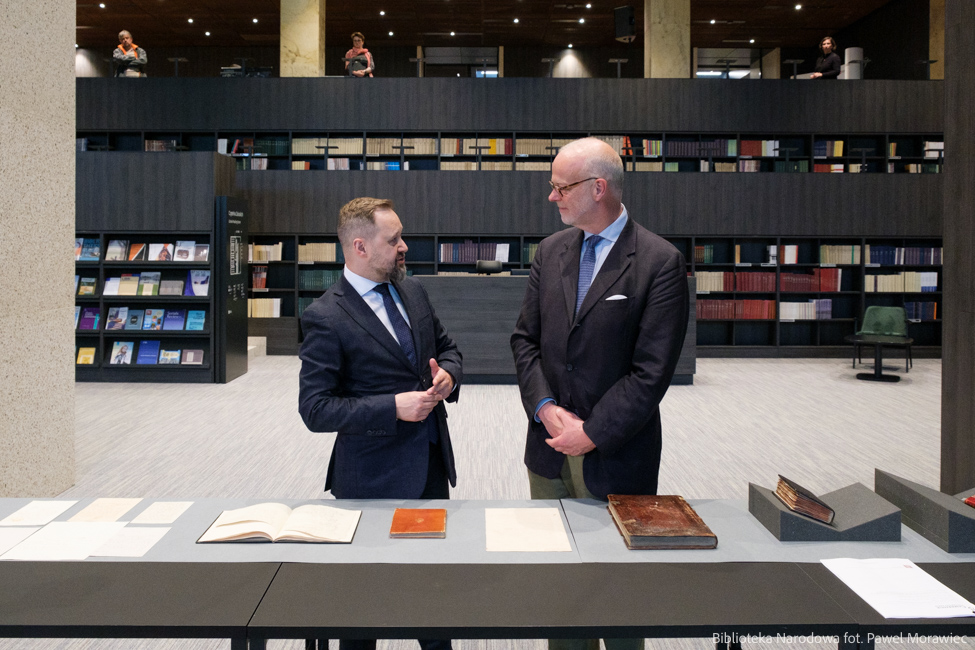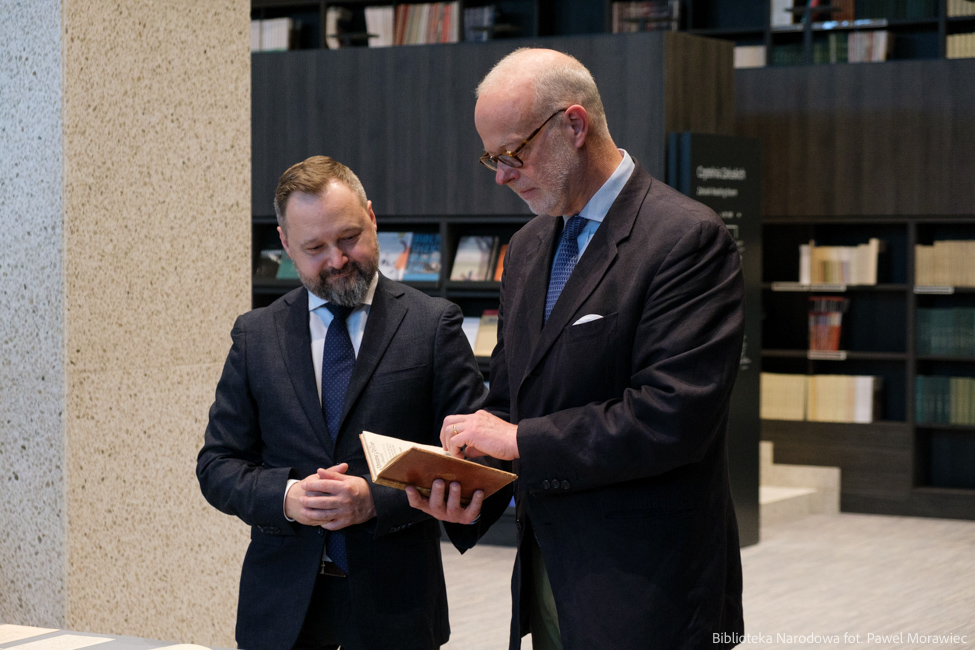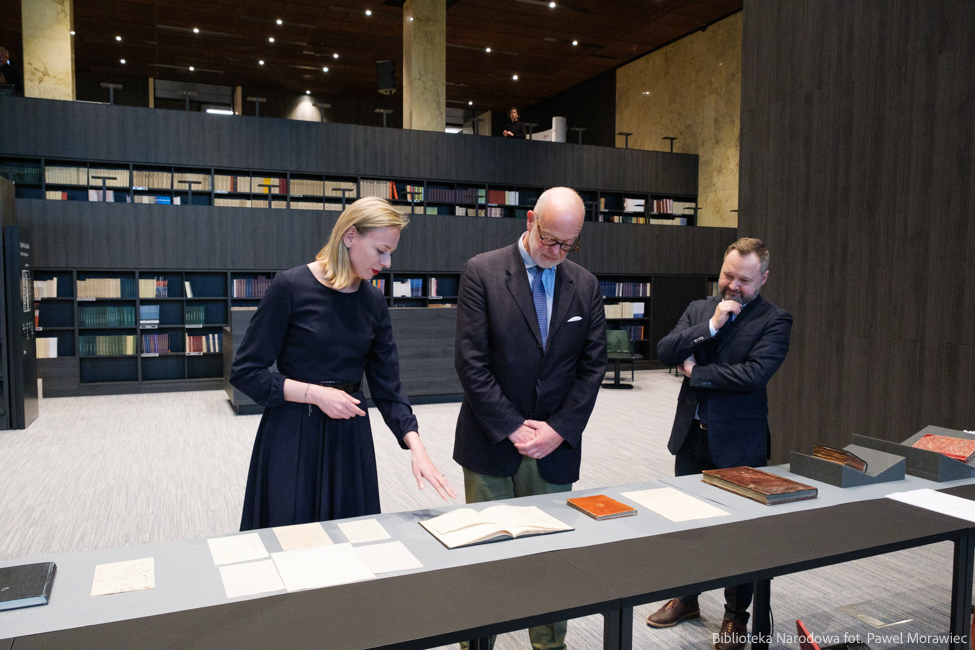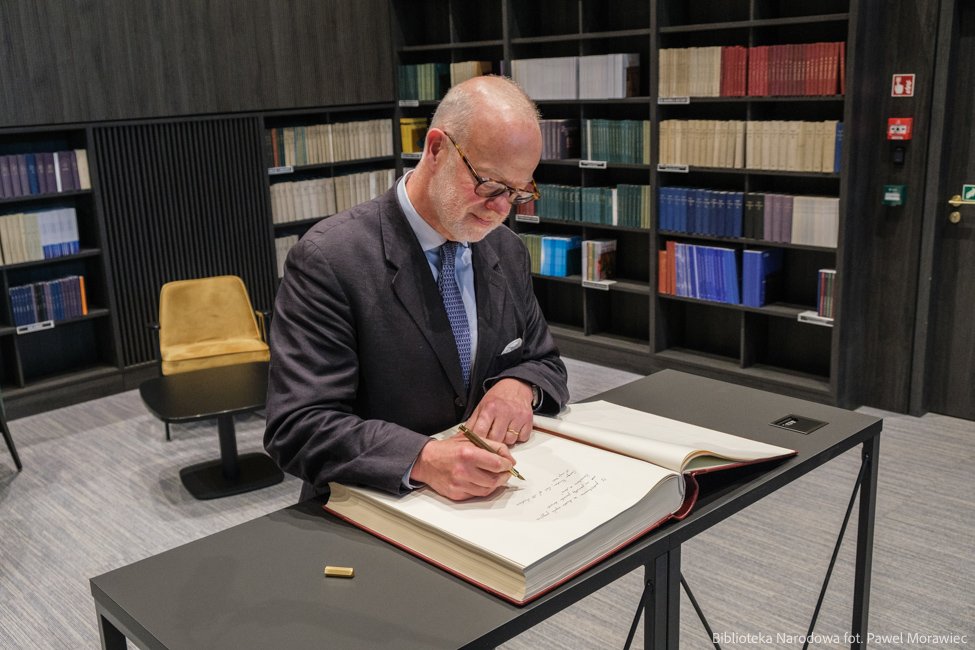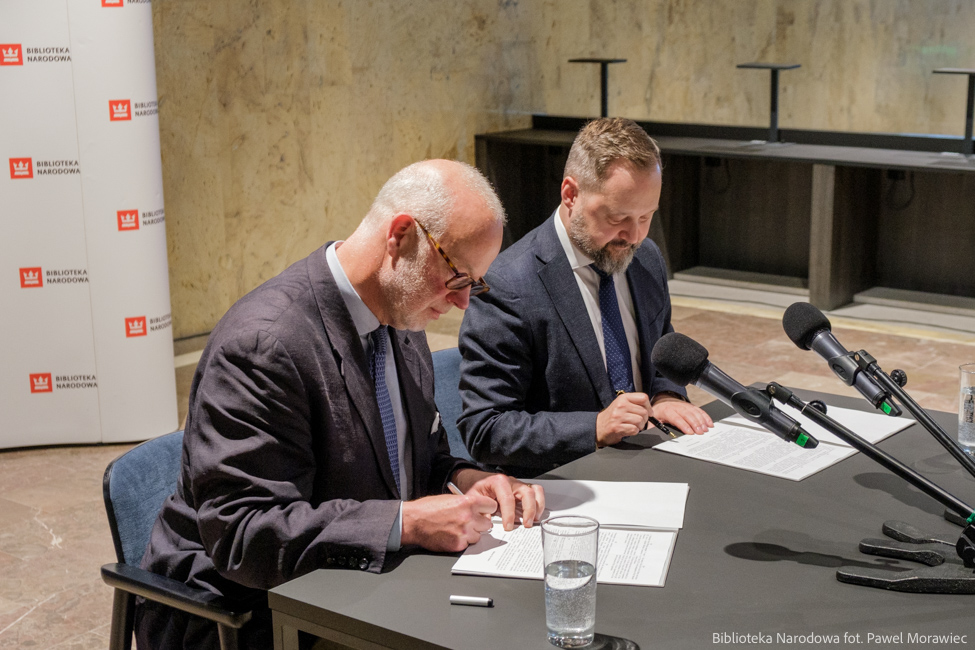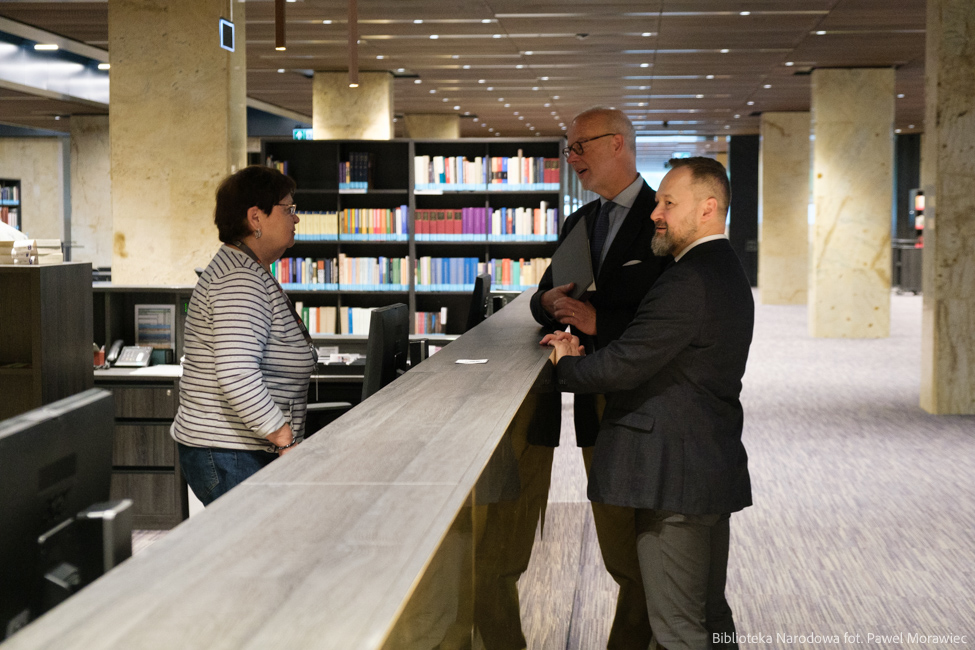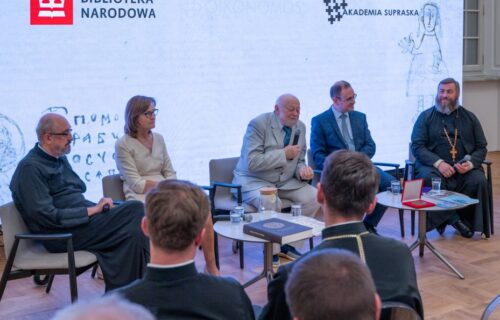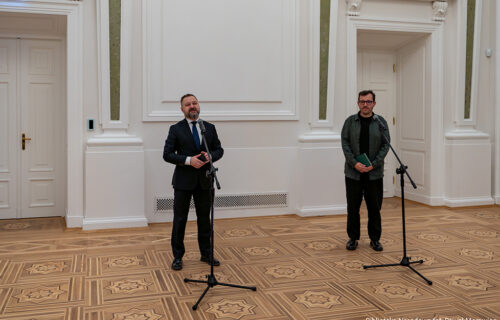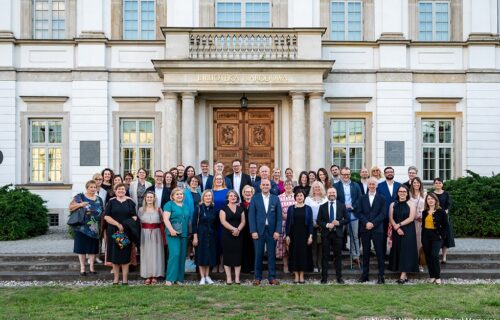Donation by George Windsor, Earl of St Andrews, to the National Library of Poland
On Monday, May 15, the National Library was visited by George Windsor, Earl of St Andrews.
During his visit, Earl of St Andrews gave the Library a very valuable early printed work which belonged to the first Polish National Library in the eighteenth century, opened in Warsaw in 1747 by Józef and Andrzej Załuski.
George Windsor, Earl of St Andrews (born 1962), is a member of the British royal family, the great-grandson of King George V. He is the elder son of Prince Edward and heir-apparent to the Dukedom of Kent. He was educated at Eton College and Cambridge University, where he studied History. He has worked in the British Diplomatic Service in New York and Budapest and at Christie’s auction house as a specialist in old books. He is chancellor of the University of Bolton and a member of the board of many different charities.
Francisco Vázquez’s L’histoire de Primaleon de Grèce was published in Lyon in 1572 in a translation by François de Vernassal and Gabriel Chappuis. The work was first published in 1512 and is a sequel to Palmerín de Oliva, published in 1511. It recounts the adventures of the Spanish knight Primaleón and his beloved Gridonia, the adventures of his brother Polendos and the love story between his sister Flérida and the English prince Don Duardos. Some scholars believe that the work may have inspired Cervantes when he was writing Don Quixote. The French translation was published in four volumes, of which the first volume forms the donation to the National Library of Poland.
The donated copy stems originally from the collection of the Załuski Library of the Republic, Poland’s first national library. The Library was founded in the eighteenth century by Andrzej and Józef Załuski, who were the Bishops of Cracow and Kiev respectively and wealthy, well-educated bibliophiles. The Library was one of the largest and most important libraries in Europe. On the orders of Czarina Catherine II, it was taken from Warsaw to Saint Petersburg, where it became the main collection of the Imperial Public Library. A large part of it was returned to Poland at the country’s request after the restoration of Polish independence in 1918.
Many copies were lost when the Library was moved to St Petersburg. The National Library holds the largest collection of surviving copies. Some copies can be found today in leading historic libraries around the world. Each copy from the Załuski Library donated to the National Library is extremely valuable, especially given the cataclysmic destruction of Polish libraries during the Second World War II – in particular the burning of the most valuable manuscripts and early printed works from the National Library, including the collection of the former Załuski Library, by German soldiers in the autumn of 1944 in the BOK building on Okólnik Street.
George Windsor, Earl of St Andrews when presenting his gift to the National Library of Poland said:
“I had the good fortune to come across this first book of the chivalric romance L’Histoire de Primaléon de Grèce (attributed to Francisco Vasquez, translated by François de Vernassal and Gabriel Chappuis, and published in Lyon in 1572) during my student years in Cambridge. It was only years later that I discovered its provenance in the collection of the great eighteenth-century bishop and bibliophile Józef Andrzej Załuski, and learnt about the significance and the tragic history of that collection. From its binding the book appears to have been in Britain since the early nineteenth century. Today, after having this book as a cherished companion on my bookshelves for many years I am happy for it to return to its proper home. I shall take pleasure in thinking that I have been able to make a small contribution to the restoration of Poland’s cultural heritage, as well as to show my affection for Poland and Her people.”
Prof. Piotr Wilczek, Ambassador of the Republic of Poland to the Court of St James’s send a message to the National Library of Poland:
“Books, particularly rare books, are not only a medium for the transfer of ideas, but also crucial historical artefacts which tell enduring stories that travel across space and time. Leafing through the pages of a rare book, we cross time and touch the very same pages that our forebearers once did. This is particularly true of Francisco Vázquez’s L’histoire de Primaleon de Grèce from 1572, which once belonged to one of Poland’s earliest enlightenment thinkers, Bishop Józef Andrzej Załuski, founder of the first public library in Poland, the Załuski Library, and forerunner of the National Library in Warsaw. Until recently, this book was also kept in the library of another eminent bibliophile and dear friend of Poland, George Windsor, Earl of St Andrews. Today, I welcome the great news of the Earl’s decision to gift the Primaleon to the National Library of Poland, thus bringing it back to the Polish nation and making it available for many generations to come.”
Dr Tomasz Makowski, Director of the National Library: “We are gradually collecting individual items from the first Polish National Library, one of the largest in Europe in the eighteenth century. This gesture by Earl of St Andrews is part of the noble tradition of bibliophiles returning copies to libraries that have been dispersed. We are extremely grateful to him for this. I would also like to thank the current and previous Polish Ambassadors to London for their initiative and actions that have led to such a spectacular conclusion.”
During his visit to the National Library’s headquarters in Warsaw, Earl of St Andrews also toured the new reading rooms and viewed a specially prepared display of manuscripts from the National Library’s collections.
